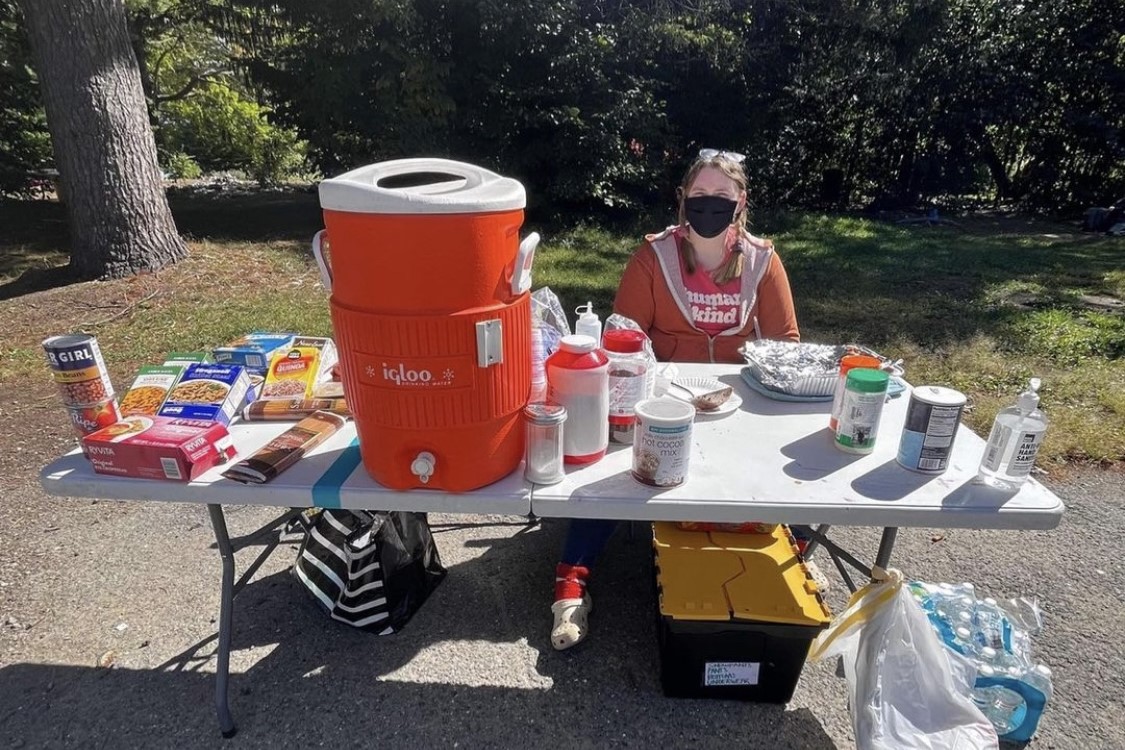
Student Spotlight: Brenna Jones
Brenna Jones discovered her path in research after volunteering with the Greater Bangor Houseless Collective (GBHC) in July 2021. “During this time, Dr. Pitman and I were actively reading literature on homelessness, drawing connections between abstract ideas and the current conditions in Bangor.” Jones has continued working with GBHC over the past few years and her volunteer position has now evolved into a leadership role with the organization. “This journey has deepened my commitment to reshaping the narrative surrounding homelessness and precarious housing, through sharing the voices of those with lived experiences.”
Jones’ research is focused on “the lived experiences of individuals who are unhoused and/or precariously housed. I define precariously housed as a person who has difficulty maintaining housing or lives with roommates because they might experience homelessness otherwise. I define people who are unhoused as individuals living outside, in a motel, in a vehicle, in a shelter, or temporary location (like couch surfing).” Jones interviewed 18 precariously housed and unhoused people to talk about their experiences and attempts to find housing in the Bangor area. “The study investigates the socioeconomic barriers affecting precariously housed and/or unhoused people, which may include factors such as wages, work hours, job benefits, healthcare, credit reports, down payments, and rent costs that all impact their ability to secure permanent housing. Furthermore, the research delves into the narratives to examine the consequences of stigmatization on this population, exploring how stigmatization, along with socioeconomic constraints influences participants’ relationship with the public, institutions, family, and community.”
Jones is thankful to both of her faculty mentors, Dr. Brian Pitman and Dr. Ryan LaRochelle, for everything they have done to help her achieve success. “Dr Pitman and Dr. LaRochelle have challenged me to explore new ideas and delve deeper into aspects of my analysis that I might not have considered without their valuable inputs and insights.” She says that even when she did not have complete confidence in her own abilities, her mentors did and encouraged her to keep going. “Their unwavering belief in my potential pushed me to higher standards in my drafts and encouraged me to aim for more than settling for the status quo.”
For those who are thinking of getting involved in research, Jones recommends choosing “a topic that you are genuinely excited and passionate about. […] It is an incredible experience to sit down to write a compelling subtheme based on the insights from my interview transcripts and leaves me feeling invigorated and motivated.” She also advises to surround yourself with people who share your passion. “Having a support network to discuss ideas and share breakthroughs makes the process more enjoyable and helps sustain your excitement for the topic through the long stretches of research.”
